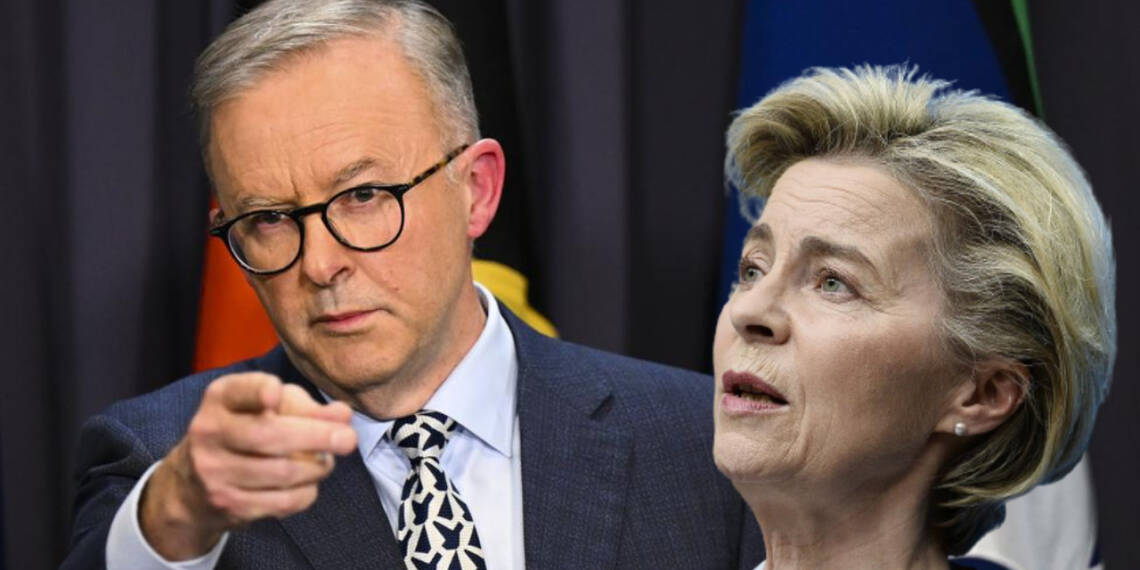Australia has dropped a bombshell on Europe. Europe which is already bleeding after sanctioning Russian energy imports will be soon out of breath by this jolt.
European economies which were shifting toward clean energy yesterday, have no other option but to go back to coal today. But Australia which has the third largest coal reserves in the world has denied giving any more coal to Europe.
A recession that is already looming over European economies is all set to worsen.
Europe’s transition to coal
The Ukraine conflict and Russian sanctions have altered Europe’s energy use like never before. The largest Russian gas consumers in Europe are scrambling to find alternate fuel sources. They are planning to burn more coal to make up for the decreased gas supplies from Russia, as an energy catastrophe looms over their head.
In Germany, a mothballed coal-fired power plant has been restarted, marking the first instance of its sort as the continent’s biggest economy grapples with life without Russian gas. Germany is not the first country to switch to coal-fired power plants; Italy, Austria, and the Netherlands have also taken similar measures.
The Dutch government has already said that it will lift the restrictions on coal-fired power plants to address the country’s current energy problem. Similarly, Austria’s government has agreed with utility Verbund to convert a gas-fired power plant to coal should the country face an energy emergency.
Furthermore, European Union’s diktat for member states to reduce gas demand by 15% will make them burn more coal. All in all, the increased coal usage in power plants will lead to more demand for coal from overseas.
Europe’s diversification
Europe which imported almost 50 percent of coal from Russia is actively looking for alternatives after placing an embargo on Russian coal.
Australian coal exports to northern Europe grew from 5.4 million tonnes in the first half of 2021 to 9.2 million tonnes in the first half of 2022. This is more than a 70% increase from 2021. Australia was one of the countries to which Europe had started looking to.
This also helped Australia as China had banned its coal imports after the former prime minister Scott Morrison sought an independent inquiry into the coronavirus outbreak in China. However, a recent report by Bloomberg suggests that senior Chinese authorities have been presented with a plan to begin importing Australian coal. And all this is because of concern that European export restrictions on Russian coal would further drive-up prices worldwide.
It’s possible that Penny Wong, the foreign minister of Australia, and Wang Yi, the foreign minister of China, laid the stage for a rollback of the coal policy during a recent “ice breaker” meeting.
If Australia starts exporting coal back to China, Europe will be the sole loser. Pranay Shukla, associate director at S&P Global Market Intelligence said that if the thaw between Australia and China on coal starts to break, “Australia is expected to leave Europe and its allies with tighter coal supplies who are already depending on Australia as an alternative to Russian coal.”
Also Read: Indonesia’s coal trap leaves China gasping for Australian coal
In recent weeks, concerns about an economic downturn have caused a considerable decline in commodity prices generally, but coal prices have remained high.
With more and more countries looking for coal and with the winter approaching, losing Australia as an alternative will deal a heavy blow to the continent. Europe will have to find a new source for more than 40% of its total coal imports.
Europe’s ban on Russian coal is scheduled for August onwards and the major economic brunt will be faced by countries like Netherlands, Germany, and Poland who were heavily reliant on Russian coal and are struggling with alternative. Europe’s entire economic system is in danger of collapsing. And, if Europe fails to find alternatives, it can very well be de-industrialised.
What do you think, is there any way out for Europe from this crisis or is it doomed? Do let us know in the comments.








